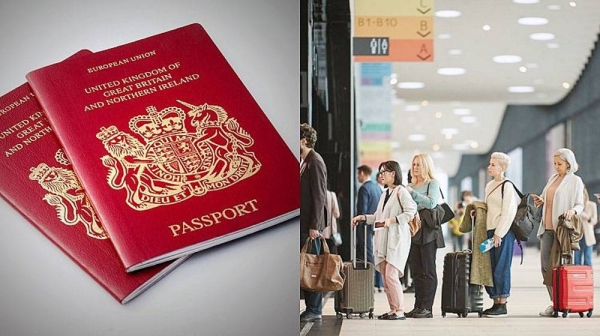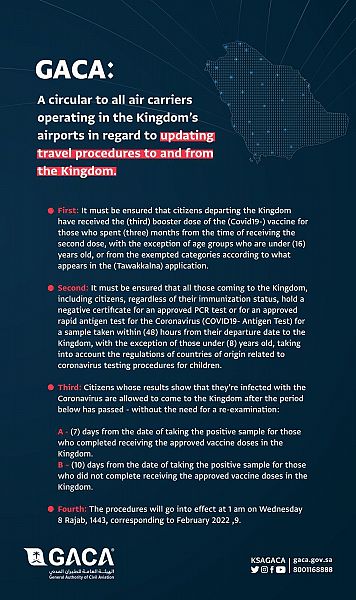
LONDON: “It was the most horrible, humiliating day of my life,” Issam Abdallah said in 2019 after an American Airlines flight he had boarded from Alabama to Texas was canceled because crew members felt “uncomfortable” with him on the flight.
Once removed from the aircraft, Abdallah was detained by an FBI agent and quizzed about his name and employment. When he asked why he had been singled out for questioning, he was allegedly told by the agent it was because he “went to the restroom and flushed twice.”
Twenty years on from the 9/11 terrorist attacks, the way people travel by air has changed irreversibly.
For the vast majority of travelers, the safety measures implemented at airports and on aircraft in the aftermath of the attacks have led to the minor inconvenience of body scans or extended waiting times in queues for a security check.
With all lighters banned on commercial flights since 2005, smokers now have to wait for their checked-in luggage to arrive before satisfying their craving. Cockpits are now locked so that no passenger can access the controls, and if a pilot needs to leave, cabin crew receive training to protect the cockpit to prevent anyone from potentially hijacking the plane.
Other measures have their roots in foiled terror plots.
Air passengers now have to take off their shoes when going through security checks following British terrorist Richard Reid’s attempt to detonate explosives hidden in his shoes on American Airlines Flight 63 from Paris to Miami in December 2001 — just months after 9/11.
And after British police foiled a large-scale terror attack in 2006 involving explosive material disguised in soft drink bottles, which had been scheduled to detonate aboard 10 transatlantic flights, air passengers have been restricted to liquid containers of no more than 100ml.
As new threats emerged, aviation security evolved, adapted and implemented measures that have become standard and the accepted norm, simply part and parcel of modern air travel, all while making flying considerably safer, according to the advocates.
But for Arabs and Muslims, like Abdallah and his co-passenger Abderraoof Alkhawaldeh on board that Birmingham-Dallas flight two years ago, there has been a consistent, additional layer to these measures. One of profiling based on their religion or ethnicity, which they have had to contend with ever since 9/11, usually disguised as “random” security checks.
Abdallah’s story, just one in a litany of incidents over the past 20 years involving passengers deemed to have the “wrong” skin color, religion, or to speak the “wrong” language or have the “wrong” name, brings into question the so-called randomness of these checks.
Faizah Shaheen, a mental health worker in the UK, was removed from a flight and questioned on the way back to Britain from her honeymoon in 2016 because cabin crew had spotted her reading a book about Syria.
Two years before Abdallah’s ordeal, Iraqi-born student Hasan Aldewachi was also thrown off a flight from Vienna to London Gatwick Airport because a fellow passenger had seen a text message he was sending to his wife, simply alerting her the flight was delayed and he would be a little late getting home. The issue? The message was written in Arabic.
The list goes on.
Fast forward 20 years from 9/11, a proportion of air passengers, some born and bred in countries such as the US, the UK and France, are still falling foul of a phenomenon experts have called “flying while Muslim.”
This involves the racial profiling of Muslims or people who are deemed to be “Muslim-looking” at airports or on board aircraft. These people are instantly under suspicion for otherwise normal and mundane activities — including speaking Arabic, watching or reading news on their phones, or simply because they “look” Muslim or, more often than not, are of Middle Eastern origin.
This stigmatization from the moment they step foot into airports has contributed to some Muslims deciding against traveling by air altogether, according to entrepreneur Soumaya Hamdi, who founded the Halal Travel Guide, which runs holiday tours specifically tailored for Muslim tourists after she discovered they were drastically underserved by the travel industry.
“It’s just standard, it’s kind of a joke, you ask yourself: ‘Am I going to get stopped today?’ and nine times out of ten, yes you are,” said Hamdi, who herself has been stopped at British airports.
“I appreciate that it’s really important for people to feel safe and I think a lot of Muslim and Arab travelers do appreciate that as well, which is one of the reasons why I think we’re willing to go through the charade of these security checks.
“In some European countries, places like France, if you’re a visibly Muslim man or woman — and typically women get the worst of it — there’s a lot more of a feeling of not really being wanted there.”
Hamdi added: “The cultural narrative around 9/11, such as films that have come out, has not helped and deeply contributed toward stereotypes of Muslims, so for a lot of Muslim travelers it has entered our internal psychology in that we have started to limit ourselves as to the destinations we feel comfortable traveling to.”
Since 9/11, the consequences of this security approach entrenched in suspicion have been felt on an individual level for travelers like Abdallah, Shaheen and Aldewachi.
But, at times, they have also escalated to include millions of Muslims around the world in one fell swoop with policies such as the so-called Muslim travel ban in 2017, ordered by then US President Donald Trump.
A study published in the same year by Uzma Jamil, a senior research equity adviser at McGill University in Canada, concluded that these security measures, along with the arbitrary inclusion of thousands of Muslims on “no fly” lists, are part of an ongoing process of “securitization of Muslims,” which she believes has sought to construct them and the religion of Islam as a threat to the West since 2001.
“The ‘no fly’ list contributes to Islamophobia through disproportionately profiling racialized Muslim and Muslim-looking passengers as members of a suspect community,” she wrote.
“Information collected by the state, which includes the ‘no fly list,’ is used to confirm the existing ‘knowledge’ of Muslims as a suspect community.
“Knowing who Muslims are, what they are doing, where they are coming from and where they are going to, only because they are Muslim, facilitates their racial and religious profiling and contributes to the institutionalization of Islamophobia,” she added.
Hamdi feels the same way.
“I don’t know that anything is being done to resist profiling. In fact, I would say there is a concerted effort to make it part of policy, and there has been for the past 20 years or so,” she said.
“It’s one of the things that puts me off traveling to the US. People get put on ‘no fly’ lists and there is a very similar ethnic or religious connection between the type of people that get put on those lists, as opposed to a material connection to terrorism.”
Statistics would appear to confirm their conclusions.
A US study in 2017 showed two-thirds of all passenger inspections at an airport upon entering the country occurred to “non-white” people, and 97 percent of those selected for physical, pat down searches were completely innocent of any crime.
Figures released by the UK Home Office in the same year showed that 88 percent of people detained at UK ports of entry were also not white. The fact that only 0.02 percent of those stopped for questioning were charged with an offense shows the full scale of the problem.
Sept. 11, 2001, undoubtedly changed the world in so many ways, and air travel will never be the same again for anyone. It instilled within passengers a generational fear of terror attacks at airports or on board aircraft, which has led to the widespread acceptance of extensive — and, for Muslims, often intrusive — security measures as a necessary pay off for safety.
But two decades on from the attacks, a sad reality lingers: Overnight, the atrocities made scapegoats and suspects out of ordinary people who, just by doing something as basic as traveling on a plane or going abroad, have had to bear the brunt of suspicion and paranoia ever since.











